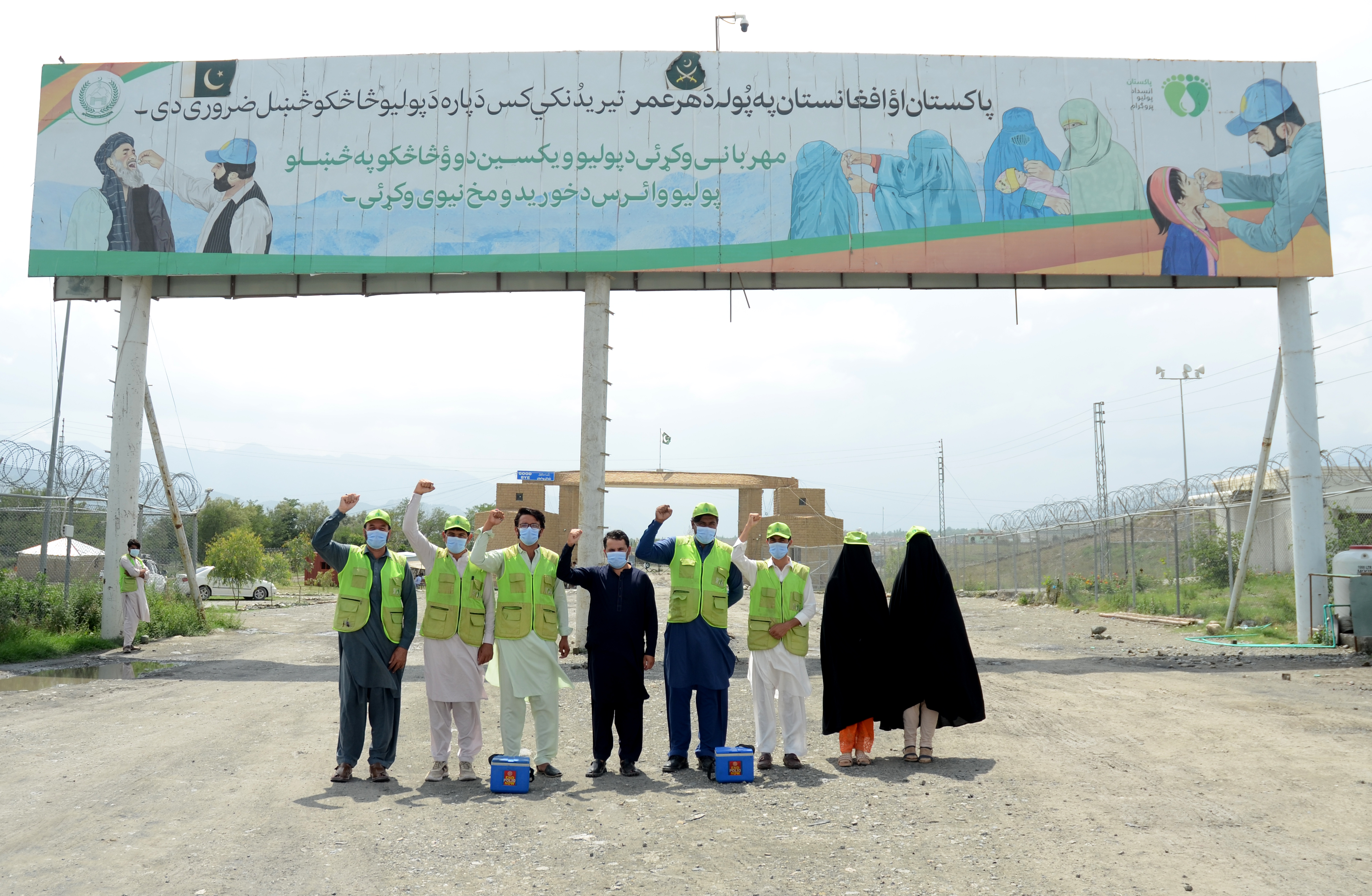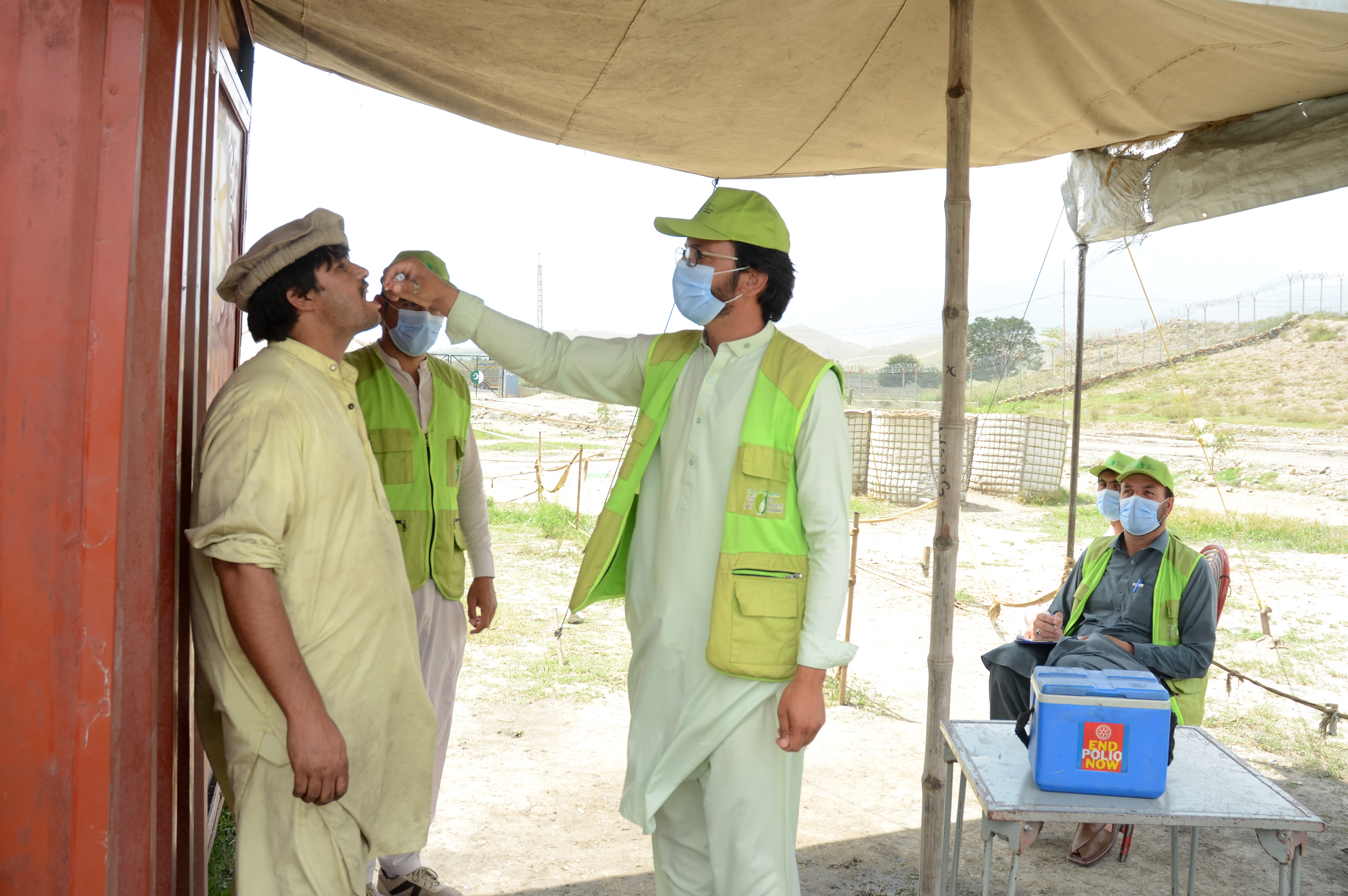Waleed Abbas, Communication Officer
Kurram, a newly merged district of Khyber Pakhunkhwa in Pakistan is having a stupendous geographical and historical role in the region due to its multiple border points with Afghanistan. Among them, Pak-Afghan Kharlachi border is more engaged and operational for trade and population movement than other borders in the district. Hundreds of people are daily crossing the border indicating that it is one of the busiest Pak-Afghan borders.
“The unmonitored movement of people across the border between Afghanistan and Pakistan threatens efforts to eradicate polio from the two countries, as people travelling through unchecked crossings,” said kamran Ali Khan, the supervisor of the Permanent Transit Point for Polio (PTP). The Pakistan Polio Eradication Programme has set up a Permanent Transit Point for Polio (PTP) to ensure vaccination of all travelers regardless of their age and gender.
Kamran and his 16 member team are responsible for ensuring vaccination all people entering the country through Kharlachi border.They work in two shifts every day, starting from the morning until the border close. More than 300 travelers are immunized daily at this border.
Polio Vaccination team at Pak-Afghan border at Kharlachi, Tribal District Kurram are one of many teams working tirelessly for ensuring vaccination at the border gate.
© Pakistan Pakistan Polio Programme/Waleed Abbas/2021
The wild polio virus is still circulating in communities that move across the border between Afghanistan, Quetta and southern Khyber Pakhtunkhwa (KP). The high population movement within the country and across the border with Afghanistan sustains virus transmission.
The Polio programme in Pakistan is managing such risks through vaccination of all people at border crossings across shared corridors and among highly mobile population groups.
Iftikhar, a Polio worker, is administrating polio drop to an Afghan citizen, Abdul Khaliq, entered in the Pakistan territory via Kharlachi border.
© Pakistan Pakistan Polio Programme/Waleed Abbas/2021
“Lack of awareness among people on the crippling disease like polio is the main problem at the border points. Our teams are working hard to strengthen the border vaccination process,” said Kamran. “We ensure vaccination of all travelers irrespective of their age and gender. Regular record keeping and maintaining the required data on a daily basis are key of our work.”
The PTP teams are placed at all the operational Pak-Afghan borders i.e Torkham, Chaman, Gulam Khan, Angoor Adda including all transit points in the country. Team members are addressing the challenges of low routine and supplementary immunization amongst the seasonal and economic migrants as well as agricultural migrant labor families who most often cross the border sites between the two countries through all age vaccination.
Afghanistan-Pakistan: virus has no boundaries
Abdul Basit, Coordinator EOC Khyber Pakhtunkhwa stressed the importance of vaccination at the border points as the virus has no boundaries. “The need for all age vaccination at permanent transit points and cross border vaccination sites should be prioritized to augment global and national level efforts to eradicate polio from Pakistan and Afghanistan simultaneously. We are keen to play our part and are motivated enough to make this region polio-free forever,” said Abdul Basit.
Epidemiologic evidence and genomic sequencing of both World polio virus cases and environmental samples confirm linkages between transmission in Afghanistan and Pakistan. Analysis of data shows that the two countries constitute one epidemiological block. The high levels of population movement between the countries sustains transmission across the borders. Neither can achieve eradication within their borders without the other.


